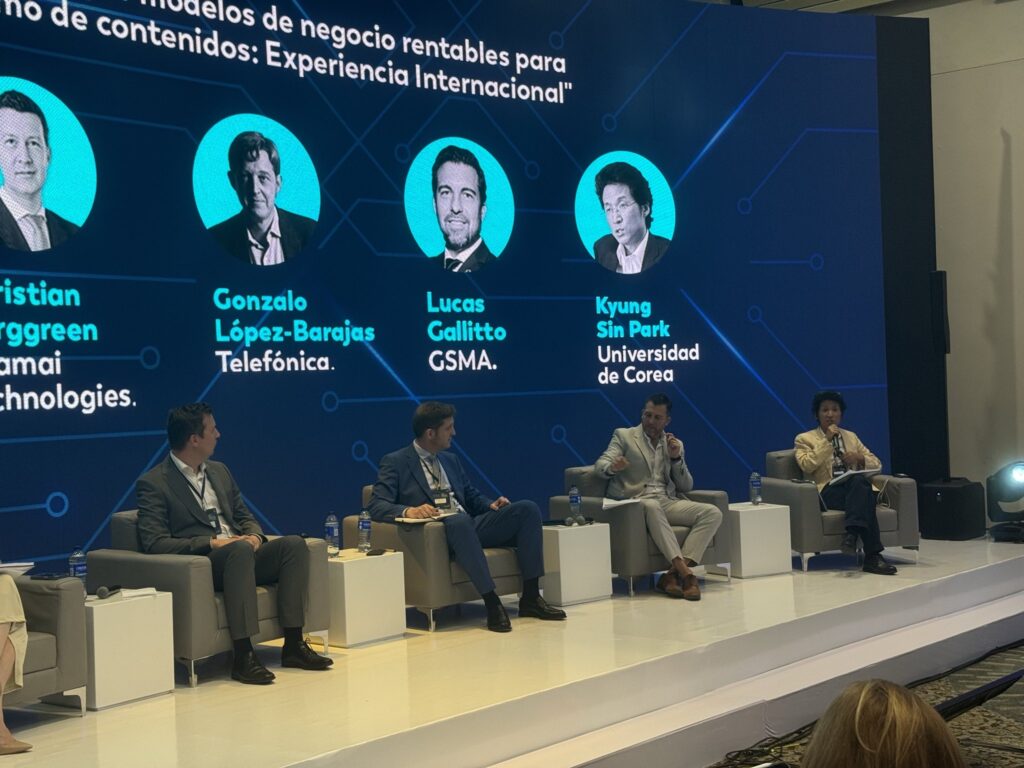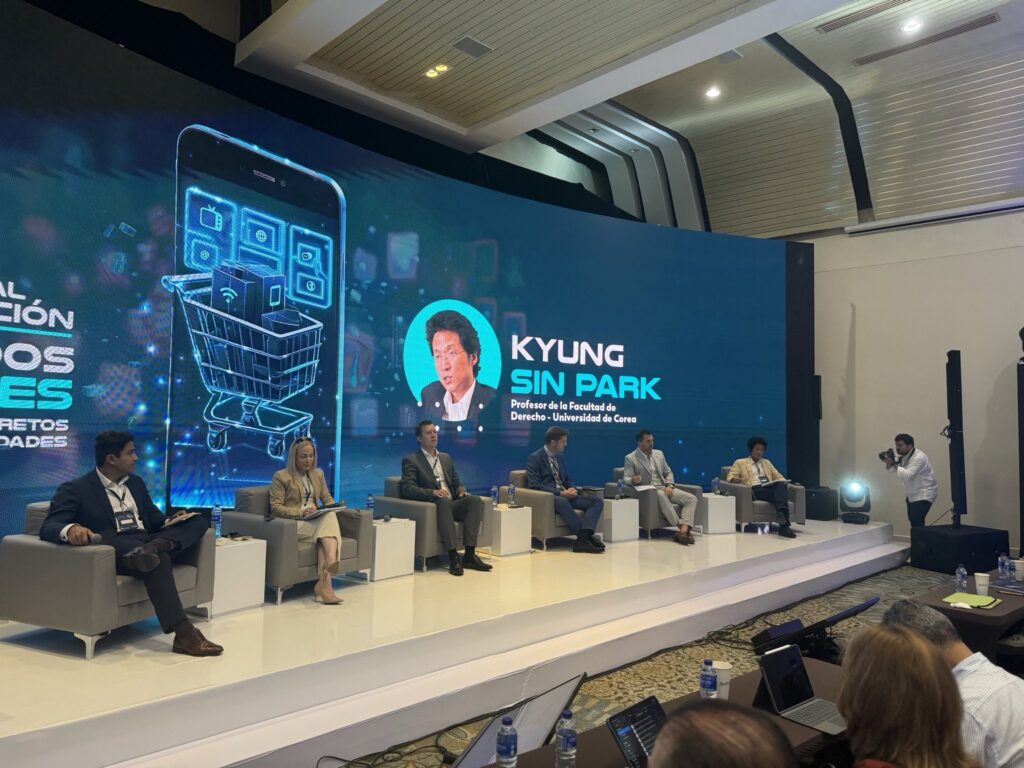

K.S. Park was invited by Colombia’s telecom authority, Comisión de Regulación de Comunicaciones – Colombia, to debate with GSMA‘s Lucas Gallitto, TELEPHONICA‘s Gonzalo Lopez-Barajas Huder, Akamai Technologies‘s Christian Borggreen, Meta‘s Nina Cummins, LL.B, LL.M, moderated by @Cullen International’s Ezequiel Dominguez on the sender pay rule or the “fair share” deal on September 3, 2024 at the 19th Taller International Regulation Workshop in front of 400 or so LATAM policymakers. Again, he emphasized the benefit of the internet’s architecture whereby everyone pays only to connect but not to send or receive, and a departure from the golden rule will undo the information revolution as shown by the Korean case. These were my responses to the tropes that came up again during the debate again:
“Big techs’ data traffic use too much of the network” – If you identify traffic by who carries it, it is also telcos’ data that take over the network too much. This alternative description is more accurate because under the current server-client model dominating 90% of the internet, traffic is caused by the users who request it. Claro has 45% market share in Colombia’s last mile, which means that 45% of all the traffic handed over at Colombian’s border by big techs’ subsea cables are destined to Claro’s network. Should Claro be asked to pay because they use 45% of data traffic nicely delivered to the country’s border? On a somber note, the idea that traffic is “owned” by someone does a terrible disservice to how the internet achieved the information revolution by crowdsourcing cooperation of many many players for the benefit of all. If one makes a car trip on a highway, the builder of the car, the builder of the highway, the driver, and the government maintaining the road are all involved. You cannot call that traffic Mercedez’s just because the car used in that trip is a Mercedez.
“Someone needs to spend money to connect everyone” — Content providers are also spending money to connect everyone. Any cross-border internet traffic has the domestic segment and the overseas segment. If a Colombian user “visits” youtube.com, the html file has to travel Google’s subsea cable and then the local network. So far Google and, say, Claro did not charge each other for sending or receiving the traffic because it was mutually beneficial to each other. Google could access Claro’s customers who want to visit youtube.com and Claro could satisfy their customers AND save the transit payment that Claro would have paid to the higher tier ISP had they not sourced the traffic from Google’s subsea cable. Someone responded “the last mile is more expensive to build!” — Well, in that case, invite content providers back into the last mile. Already X’s affiliate Starlink is building the last mile. Google’s Loon project and Meta’s solar plane WIFI are all on the horizon. If the telcos do not feel up to the job, please let other players build out the network. Contrarily, telcos want to hold on their monopoly. Korean telcos have lobbied to ban municipal broadband in Korea for decades until this year!
“Requiring to pay to send makes an economic sense” — With the sender pay rule, you will need a lot more money BEFORE you can become popular online — the money you need to pay to feed data to a local network. The rule will only strengthen the incumbents such as Google and Facebook because they already have money to spend on the sender payment. The sender pay rule will create a glass ceiling or a disincentive for startups who want to become popular online. With the sender pay rule, new startups will have to start out with paid services to defray the cost of the sender payments due the local telcos and they will never be able to compete with the incumbents. Or they will have to intentionally degrade the services to reduce the fee which is what Twitch actually did in 2023 before finally pulling the plug on their Korea service.
“Korea is doing well according to Telefonica” — Korea’s content/app market is not doing well. Never seen a unicorn for a couple decades now because of the high internet access fees – high because the sender pay rule instituted among ISPs – as high as 10 times Frankfurt 8 times Paris/London 5-6 times NY/LA according to the world’s telcos’ own data clearinghouse TeleGeography. Telefonica’s information source is Korea Telecommunication Operators Association practically run by the three big telcos that cover 100% wireless and 90% wired internet.
“Internet is a two-sided market. It is okay to charge users for access to big techs and than charge big techs as well for being accessed by users” — This does not make a sense because no ISP has the global network unlike VISA or Master. If any ISP sells a product called “internet” to any one person anywhere, that ISP has to work with all other ISPs around the world to fulfill the promise to allow that person to communicate with ALL other computers online. Currently, the ISPs’ cooperative arrangement is the bill and keep model where they do not charge one another for the traffic volume sent or received but only for the connection capacity. That arrangement is trickled down to the user level so all users whether they are individuals or big companies pay ONCE to the local ISP who then use that payment to procure connection with all other computers around the world. The two-sided market just does not work for the internet — VISA has not agreed to to accept Master cards or vice versa, but on the internet, each ISP has already agreed to each other’s traffic and therefore has no choice but to accept.
“CDNs are already paying the local telcos to send per traffic volume sent” — Yes, they are doing so voluntarily. Commercial CDNs have paying customers so they do not resist so much when the local telcos exercise the terminating monopoly’s muscle to charge the sender payment from CDNs. The problem with the “fair share” deal is that they MANDATE such payment by law. It violates another golden rule of the internet which is the freedom of interconnection. I really do not know how the rule will be enforced if the big techs find the connection with certain countries too expensive and just refuse to connect!


0 Comments